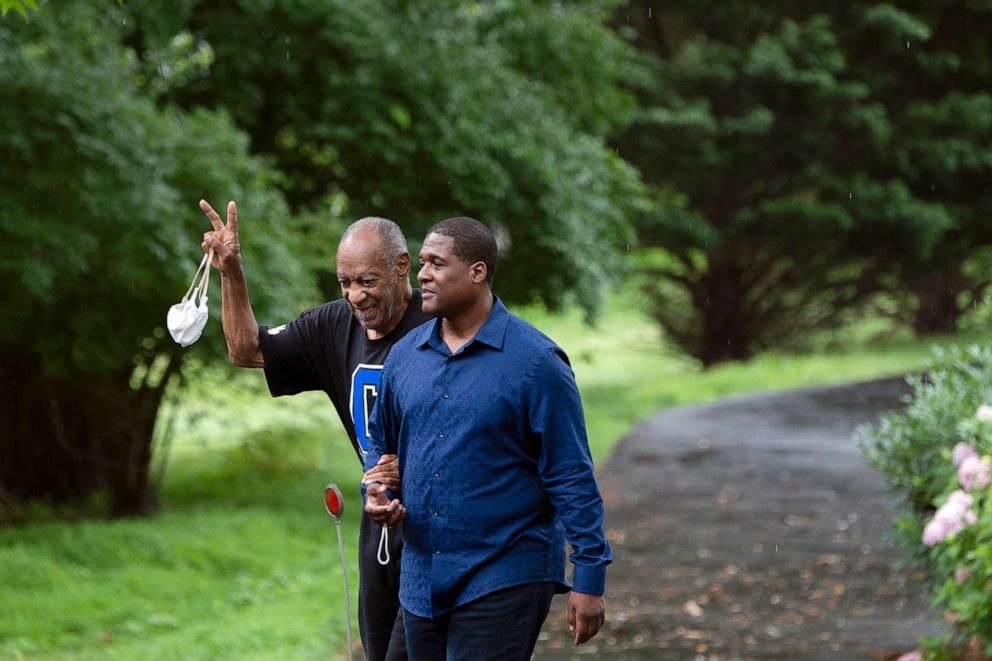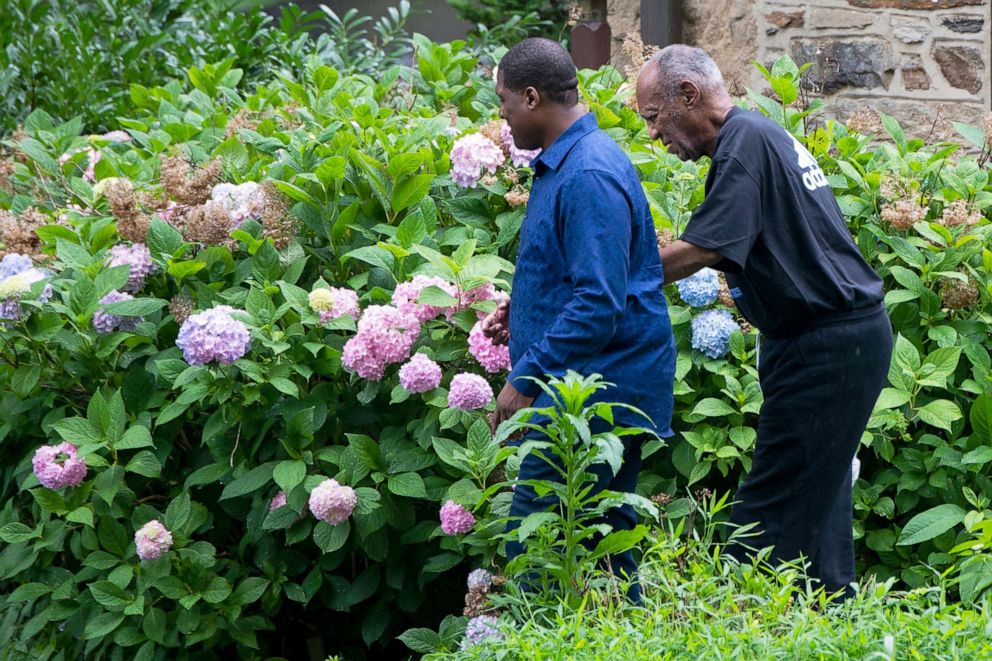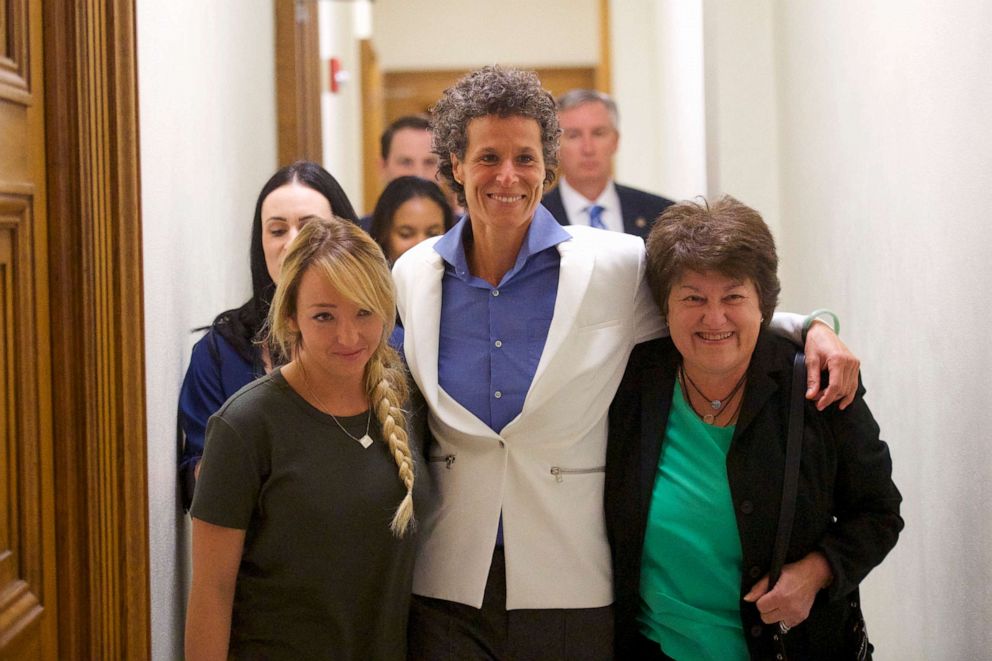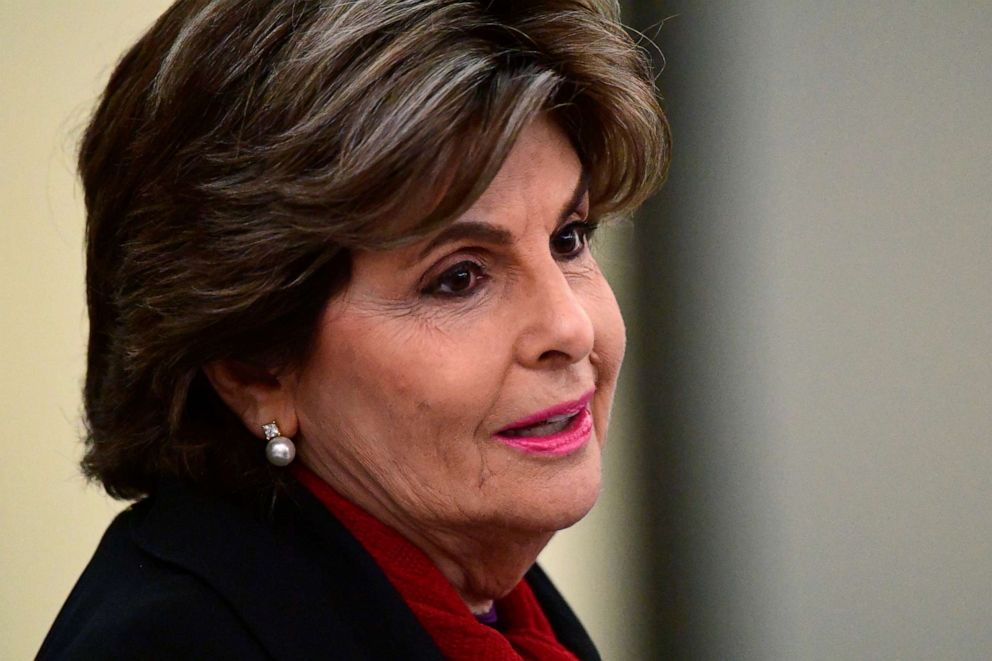Bill Cosby's prison release leaves accusers retraumatized, victim advocates concerned
"Mr. Cosby is not home free."
As Bill Cosby awoke Thursday to his first full day of freedom in nearly three years, women who accused him of sexual assault and victim advocates were left reeling from the fallout of the Pennsylvania Supreme Court's decision to vacate his 2018 conviction.
Two women who alleged Cosby drugged and assaulted them told ABC News they felt sick to their stomachs, including one who said the ruling retriggered her post-traumatic stress disorder.
"What we're seeing is a lot of people are expressing feelings of trauma, retraumatization, feeling helpless and hopeless in the criminal justice system," Elizabeth Jeglic, a professor of clinical psychology at the John Jay College of Criminal Justice who studies sexual violence prevention, told ABC News on Thursday.

Jeglic said the court's decision came across as a giant step back from the progress made during the #MeToo movement, in which rich, powerful men like Cosby and movie mogul Harvey Weinstein were convicted and imprisoned in sexual assault cases.
"Following #MeToo, we had some hope," Jeglic said. "It's very difficult for survivors to come forward and make accusations, and to go through the criminal justice system process. So when you see that it has failed yet again, you just kind of feel like, 'What can I do?' 'How is this ever going to end?'"
Jeglic said that only 25 out of every 1,000 cases of sexual abuse end with the assailant going to prison.
Cosby was convicted on April 26, 2018, on three counts of felony aggravated indecent assault, stemming from accusations made by Andrea Constand, a former Temple University employee, that Cosby drugged and sexually assaulted her in 2004 at his suburban Philadelphia mansion. Cosby was given a sentence of three to 10 years in prison.

The Pennsylvania Supreme Court overturned Cosby's conviction on Wednesday, ruling he should have never been prosecuted because of a deal he and his attorneys cut with former Montgomery County District Attorney Bruce Castor in 2005. As part of the deal, Castor agreed not to criminally prosecute Cosby if he testified in a deposition for a civil suit Constand filed against him, one that resulted in a $3 million settlement.
During a four-day deposition, Cosby, believing he had immunity from criminal charges, made incriminating statements, including that he obtained drugs, specifically the sedative Quaaludes, to give women for sex. Castor's successor, Kevin Steele, then used Cosby's statements as grounds to file criminal charges.
The state Supreme Court ruled that prosecutors violated Cosby's constitutional rights to due process and described Steele's decision to file felony charges as an unconstitutional "coercive bait-and-switch."
"The court is saying the entire process was fundamentally unfair," Dan Abrams, ABC News' chief legal analyst, said Thursday on "Good Morning America."

There were no conditions placed on Cosby's release and he does not have to register as a sex offender.
The state Supreme Court justices took their ruling a step further by concluding the only way to remedy the miscarriage of justice was to release Cosby from prison and bar prosecutors from trying him for the third time.
"We do not dispute that this remedy is both severe and rare. But it is warranted here, indeed compelled," the justices wrote in their 79-page decision.
"That was the most surprising part of the ruling to me," Abrams said, adding that the justices could have ordered a new trial.
Following the ruling, Steele released a statement saying Cosby "was found guilty by a jury and now goes free on a procedural issue that is irrelevant to the facts of the crime."
Steele could conceivably face sanctions by The Disciplinary Board of the Supreme Court of Pennsylvania if a complaint is filed over how he and his office handled the prosecution, a spokesperson for the Supreme Court told ABC News on Thursday. The Disciplinary Board declined to comment on whether a complaint has been filed against Steele.
Cosby has maintained his innocence throughout the legal ordeal, saying he never engaged in non-consensual sex.
In an interview Wednesday night with ABC News Live Prime anchor Linsey Davis, Cosby slammed prosecutors and the media.
"Nobody had the sense to say, 'Wait one second, this doesn't match up with the truth, this is not what I was taught in college, this is not what I was taught at home,'" Cosby said.
But California attorney Gloria Allred, who represents 33 women who have accused Cosby of sexual assault, said at a news conference on Wednesday that "Mr. Cosby is not home free."

Allred said she is charging forward with a civil case she filed against Cosby on behalf of a woman alleging he sexually abused her as a child at the Playboy Mansion in Los Angeles. She said the suit had been stayed for trial until the conclusion of Cosby's criminal case.
Allred said a status conference on the case has been scheduled for August in Santa Monica, California, and that she expects Cosby to testify at a deposition under oath.
"Because his criminal case is now concluded and because he is not in jeopardy of being criminally prosecuted, he will not be able to invoke his Fifth Amendment privilege against self-incrimination in our case," Allred said.
Despite the state Supreme Court's decision, Allred told ABC News that the accusers she represents have found Cosby's prosecution an "empowering experience" that has allowed them to speak out and demand changes in the laws to make it easier to prosecute perpetrators of sexual violence.
But Constand and her attorneys said in a joint statement that the Supreme Court's decision "may discourage those who seek justice for sexual assault in the criminal justice system from reporting or participating in the prosecution of the assailant."
Tarana Burke, a founder of the #MeToo movement, told ABC News that the decision by the state Supreme Court will not derail her group's mission to support survivors of sexual assault and to "expand the possibilities for ending sexual violence."
"We don't owe anybody anything. We don't owe anybody our survival," Burke said. "We just owe ourselves to survive."
Burke added, "As much as I feel sort of appalled by this overturn ... the legal system in this country was not built to support survivors, it wasn't made to give us accountability. So, when we see these failures of accountability, it's to be expected."
Lise-Lotte Lublin, who accused Cosby of drugging and sexually assaulting her in 1989, was one of five Cosby accusers to testify at his trial to help prosecutors establish prior bad acts and a pattern of practice by the comedian. She told ABC News that she takes some solace in the notion that Cosby will likely never regain his reputation as "America's Dad."
"That," Lublin said, "is gone forever."




